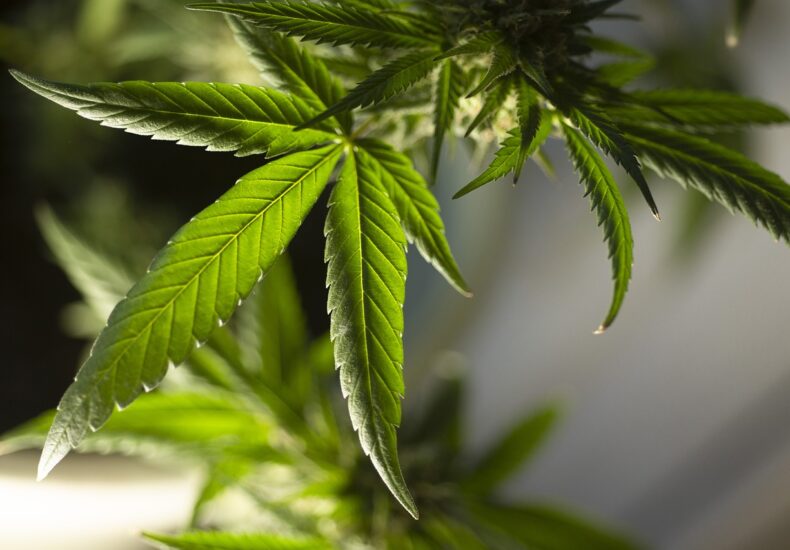
How to Use THCA Flower for Health and Wellness
THCA, or tetrahydrocannabinolic acid, is a non-psychoactive cannabinoid found in raw cannabis plants. Unlike THC, THCA does not produce a high, making it an attractive option for those seeking the therapeutic benefits of cannabis without the psychoactive effects. This article explores the potential health and wellness benefits of THCA flower from https://indacloud.co/thca-flower and how to incorporate it into your routine.
Understanding THCA and Its Benefits
THCA is the precursor to THC, the compound responsible for the psychoactive effects of cannabis. When cannabis is heated, THCA converts to THC. However, when consumed in its raw form, THCA offers a range of potential health benefits without the high.
Potential Health Benefits of THCA
- Anti-inflammatory Properties: Research suggests that THCA may help reduce inflammation, making it beneficial for conditions like arthritis and other inflammatory diseases.
- Neuroprotective Effects: Some studies indicate that THCA may protect brain cells, potentially offering benefits for neurodegenerative diseases such as Alzheimer’s and Parkinson’s.
- Anti-emetic Effects: THCA may help reduce nausea and vomiting, which can be particularly useful for individuals undergoing chemotherapy or dealing with other conditions that cause nausea.
- Appetite Stimulation: THCA may help stimulate appetite, which can be beneficial for individuals with conditions that cause appetite loss.
Methods of Consuming THCA Flower
There are several ways to consume THCA flower to harness its potential benefits. Each method offers unique advantages, allowing users to choose the one that best fits their lifestyle and preferences.
Juicing Raw Cannabis
Juicing raw cannabis is one of the most effective ways to consume THCA. By blending fresh cannabis leaves and flowers with fruits or vegetables, you can create a nutrient-rich juice that retains the THCA content. This method is popular among those looking to incorporate THCA into their daily diet without the psychoactive effects of THC.
THCA Tinctures
THCA tinctures are another popular method of consumption. These liquid extracts are made by soaking raw cannabis in alcohol or another solvent, allowing the THCA to infuse into the liquid. Tinctures can be taken sublingually (under the tongue) for quick absorption or added to food and beverages.
Topical Applications
For those seeking localized relief, THCA-infused topicals such as creams, balms, and salves can be applied directly to the skin. This method is particularly useful for addressing inflammation and pain in specific areas of the body.
Case Studies and Research
Several studies and anecdotal reports highlight the potential benefits of THCA. While more research is needed to fully understand its effects, existing evidence provides promising insights.
Research on Anti-inflammatory Effects
A study published in the journal Pharmacology & Pharmacy found that THCA exhibited significant anti-inflammatory properties in animal models. This research suggests that THCA could be a valuable tool in managing inflammatory conditions.
Neuroprotective Potential
Research conducted by the University of Barcelona indicated that THCA might have neuroprotective properties. The study found that THCA could help protect brain cells from damage, offering potential benefits for neurodegenerative diseases.
Anecdotal Evidence
Many individuals have reported positive experiences using THCA for various health issues. For example, some users have found relief from chronic pain and inflammation, while others have experienced improved appetite and reduced nausea.
Incorporating THCA Flower into Your Wellness Routine
Integrating THCA flower into your wellness routine can be a simple and effective way to explore its potential benefits. Here are some tips to get started:
- Start with Small Doses: Begin with a small amount of THCA flower to gauge your body’s response. Gradually increase the dosage as needed.
- Consult with a Healthcare Professional: Before incorporating THCA into your routine, consult with a healthcare professional, especially if you have existing health conditions or are taking medications.
- Experiment with Different Methods: Try various consumption methods, such as juicing, tinctures, or topicals, to find what works best for you.
- Monitor Your Progress: Keep track of any changes in your symptoms or overall well-being to determine the effectiveness of THCA for your needs.
Conclusion
THCA flower offers a promising avenue for those seeking the therapeutic benefits of cannabis without the psychoactive effects. With its potential anti-inflammatory, neuroprotective, and anti-emetic properties, THCA may provide relief for a variety of health conditions. By exploring different consumption methods and consulting with healthcare professionals, individuals can effectively incorporate THCA into their wellness routines. As research continues to unfold, the potential of THCA as a valuable component of health and wellness becomes increasingly apparent.
- Managing Your Canine’s Joint inflammation with CBD: An Animal Proprietor’s Overview
- Checking out the Conveniences of CBD Oil for Aging Dogs and Joint Inflammation Relief
- Brew Like a Pro: Understanding the Art of Making Perfect Mushroom Coffee
- ** The Influence of Gold IRA Charges on Your Financial Investment Strategy **.
- Tax Obligation Benefits of Purchasing Gold and Silver with Augusta